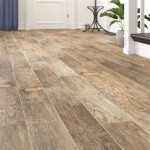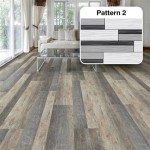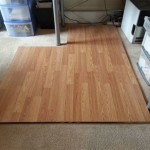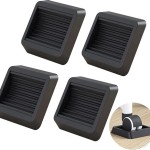How to Pick a Wood Floor Color
Choosing the right wood floor color is a significant decision that can greatly impact the overall look and feel of your space. With countless shades and finishes available, navigating the options can be a daunting task. Here are some key factors to consider when selecting the perfect wood floor color for your home.
Room Size and Lighting
The size of the room plays a crucial role in determining the ideal wood floor color. Lighter shades, such as oak or maple, can make a small room feel more spacious and airy. Conversely, darker shades, like mahogany or walnut, can create a sense of coziness in a large room. Consider the natural lighting of the space as well. North-facing rooms tend to receive less light, so opting for a lighter wood floor color can help brighten the area.
Existing Decor
Take into account the existing furniture, wall colors, and overall design style of the room. A wood floor should complement and enhance the existing elements. For a classic and timeless look, choose a neutral wood floor color, such as oak or walnut, that will coordinate with various styles and decor. If you prefer a more contemporary aesthetic, consider a darker wood floor color, like ebony or espresso, to create a dramatic contrast with light-colored walls and furniture.
Floor Traffic and Durability
Consider the amount of foot traffic the floor will receive and the level of durability required. Lighter wood floors tend to show wear and tear more easily than darker floors. If you have pets or children, a darker wood floor color or a wood floor with a distressed finish can help camouflage scratches and dents. For areas with heavy foot traffic, such as kitchens or hallways, choose a wood floor with a higher Janka hardness rating, which indicates its resistance to scratches and indentation.
Grain Pattern and Character
The grain pattern and character of the wood floor can add visual interest and personality to your space. If you prefer a more subtle and uniform look, choose a wood floor with a straight grain pattern. For a more rustic and natural feel, opt for a wood floor with a pronounced grain pattern or knots. Consider the width of the planks as well. Wider planks can create a more spacious and open feel, while narrower planks can add a sense of warmth and coziness.
Undertones and Finish
Wood floors can have different undertones, such as red, yellow, or gray. The undertone should complement the existing colors in the room. For example, a red undertone can warm up a cool-toned space, while a gray undertone can add a touch of sophistication. The finish of the wood floor also plays a role in its overall appearance. A matte finish provides a natural and understated look, while a glossy finish reflects light and creates a more formal atmosphere.
Matching with Other Flooring
If you have multiple types of flooring in your home, such as tile or carpet, consider how the wood floor color will complement them. Choose a wood floor color that creates a cohesive flow between the different flooring materials. For instance, if you have a neutral-colored tile floor, a darker wood floor color can create a striking contrast and define the space.

Guide To Choosing Hardwood Floor Colors 50floor

Hardwood Floor Color Choosing The Right One For Your Reno Tahoe Home

Choosing The Best Color Of Hardwood Floor For Your Home

5 Things To Consider When Choosing Floor Color

Tips For Choosing The Right Color Of Flooring Your Home In San Francisco Bay Area Floor

How To Choose The Right Stain For Wood Floors Cambridge Home

How To Choose A Hardwood Floor Color Levis4floors

How To Choose The Right Stain For Your Hardwood Floor Gc Flooring Pros

How To Pick The Perfect Color And Texture Of Flooring

How To Choose The Right Color For Flooring Blog Details
See Also







